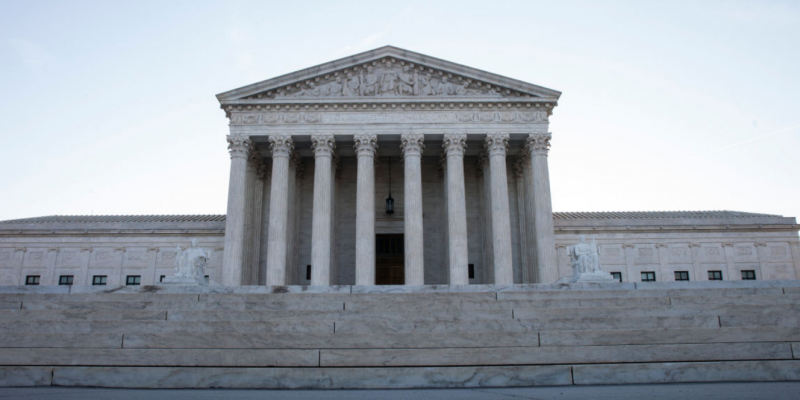The U.S. Pastor Council, an inter-racial, inter-denominational organization of pastors, says it is “appalled” by the U.S. Supreme Court’s ruling on sexual discrimination in the workplace, and argues the court is legislating from the bench, which is outside of the scope of its constitutional authority.
The U.S. Supreme Court on Monday ruled that the 1964 Civil Rights Act protects LGBTQ+ employees from discrimination in the workplace.
In the 6-3 decision, Chief Justice John Roberts and conservative Justice Neil Gorsuch joined the court’s four liberals in the majority.
“Today, we must decide whether an employer can fire someone simply for being homosexual or transgender,” Gorsuch wrote in the majority opinion. “The answer is clear. An employer who fires an individual for being homosexual or transgender fires that person for traits or actions it would not have questioned in members of a different sex.”
The decision related to three civil lawsuits in which employees claimed they were fired because of their sexual orientation. They claimed the terminations violated Title VII of the 1964 Civil Rights Act, which prohibits discrimination based on sex. Critics note that Congress has never included sexual behavior or orientation in this definition.
“In Title VII, Congress adopted broad language making it illegal for an employer to rely on an employee’s sex when deciding to fire that employee,” Gorsuch wrote. “We do not hesitate to recognize today a necessary consequence of that legislative choice: An employer who fires an individual merely for being gay or transgender defies the law.”
“The Leadership Conference coordinated the legislative campaign to pass the Civil Rights Act of 1964, and we are proud to see that historic law applied correctly,” Vanita Gupta, president and CEO of The Leadership Conference on Civil and Human Rights, said in a statement. “We know, however, that our fight to protect LGBTQ people must go on. There are still numerous gaps in our nation’s anti-discrimination laws, and Congress must act now to pass full federal anti-discrimination protection laws, like the Equality Act, for all people.”
The sole dissenter, Justice Samuel Alito, said the court was legislating from the bench. In part, he wrote:
“There is only one word for what the Court has done today: legislation. The document that the Court releases is in the form of a judicial opinion interpreting a statute, but that is deceptive.
“Usurping the constitutional authority of the other branches, the Court has essentially taken H. R. 5’s provision on employment and issued it under the guise of statutory interpretation. A more brazen abuse of our authority to interpret statutes is hard to recall.”
In Bostock v. Clayton County the court redefined “sex” to include “sexual behavior,” the U.S. Pastor Council argues.
“The claims of discrimination based on sexual behavior and now state of mind by the LGBTQIAP+ activists and that they have suffered the same such as Blacks in America has always been offensive and without merit,” USPC said. “The previous non-discrimination standards that required immutability, evidence of widespread and government induced denial of education and voting rights have been thrown out the window by these six activist judges.”
“Creating special rights based on unidentifiable and constantly changing behavior and mental illness such as gender dysphoria by this court must at some point reach a ‘final solution’ of exterminating religious freedom as the two are fundamentally incompatible,” the council added.
Advertisement
Advertisement

